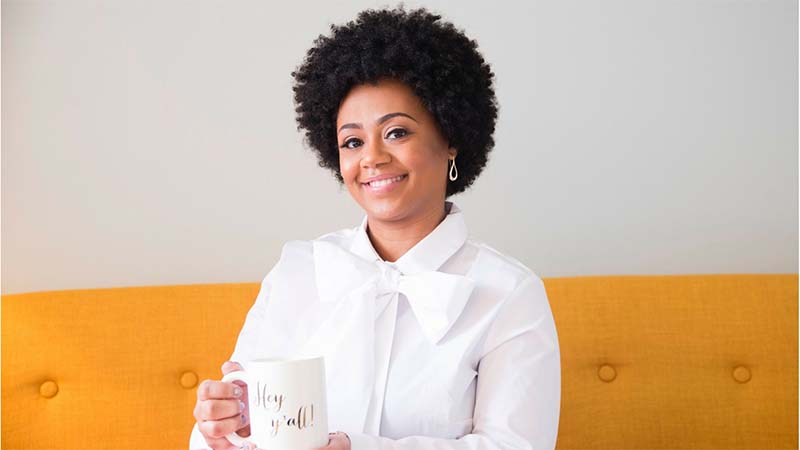“Therapy For Black Girls” Is Reducing Mental Health Stigmas In The Black Community

Dr. Joy Harden Bradford, founder of “Therapy for Black Girls”
In the black community, therapy often has a negative stigma attached to it, which is based on the misconstrued assumption that only “crazy” people require therapy, or that it should be reserved for the weak-minded.
By creating Therapy for Black Girls, Dr. Joy Harden Bradford, Ph.D., is eagerly working to eliminate these harmful myths surrounding mental health care, while also helping black women understand the monumental importance of self-care and therapy.
Dr. Bradford believes that within the black community, people have been conditioned to think that speaking about private matters should only occur between family members. “There are also many people who still view mental illness and needing to go to therapy as a sign of a weak faith relationship, which, of course, is not the case,” she told Black Enterprise.
“My work has always been heavily focused on black women and girls. I think too often we’re so busy taking care of other people that we aren’t always paying attention to what’s going on with us,” she said. “I wanted a platform that helped sisters put the focus back on themselves.”
As an online platform, Therapy for Black Girls allows for Dr. Bradford to meet people exactly where they are, regardless of their location.
The Atlanta-based psychologist is the founder of the Thrive Tribe, a popular Facebook group with nearly 13,000 members, which has now expanded into a well-known podcast with listeners around the world. In addition, Dr. Bradford has recently formed a therapist directory, featuring over 700 therapists of color across the nation. Because representation matters, black women who are struggling with mental health are potentially more likely to reach out if they are connected with a therapist they can identify with.

WavebreakmediaMicro / Fotolia
There are various ways that black women can maintain their self-care, such as setting boundaries and saying “no” more often. Dr. Bradford finds that in the black community, boundaries tend to be overlooked. “I think far too many of us don’t say NO enough,” she said. “No to that extra task at work, no to that friend who never shows up for us, no to that ex who keeps trying to come back into our lives, etc. I don’t think we always realize the cumulative impact that taking on other people’s stuff can have on our mental health.”
Furthermore, she urges people to avoid cliché phrases when speaking to a loved one that is depressed, such as “just pray about it,” and “life is hard for everyone, toughen up.”
“While people may be well-intentioned when trying to help a loved one, these sentiments typically only make people feel like you don’t understand them and that you’re not someone they can go to in the future,” Dr. Bradford explained.
To reduce the mental health stigma, Dr. Bradford says that black women should share more openly about their struggles and experiences, while also being mindful of the language that is used in order to ensure that stigmatizing phrases such as “he/she is so crazy” are no longer used.
Learn more about Therapy for Black Girls or find a therapist near you by visiting www.therapyforblackgirls.com.
No Comments